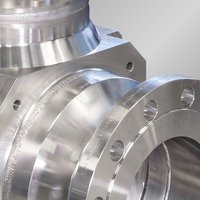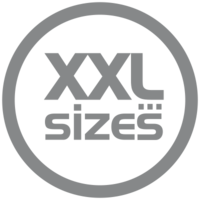Check Valve (CHK)
How does a check valve work?
A check valve is a valve that opens the flow of the medium in only one direction – the flow direction – and closes against the recirculating flow of media. The medium can be both in gaseous or liquid state.
How does the closing process work on the check valve?
In spring-loaded check valves, the shut-off element takes the form of a plate, ball or cone which opens the valve when the media begins to flow in the intended direction, creating a pressure that’s greater than the closing force of the spring. This spring closes the shut-off element when the media pressure falls below the closing pressure of the spring force, or when the medium flows in the opposite direction.
A spring-less check valve – such as the STÖHR Magros Series 1500 – opens its valve plug when the pressure of the media flow is greater than the forces of attraction of the magnet located in the valve housing. As the opening increases, the force needed to open the cone further reduces. Thus, the energy loss at fully open poppet is comparatively lower than that of a spring-loaded check valve. Unlike the spring, the magnet is not subject to material fatigue or wear, and hence magnetically loaded check valves can be described as being maintenance-free.
How does an axial overflow check valve work?
An overflow valve is an axially aligned valve in which the medium flows along the direction of construction. The media pressure prevents the closing of the valve by pressing a ball against a spring. As soon as the media pressure falls below the spring force, the valve closes. In the open state – in which the spring tension is less than the media pressure – the medium flows past the ball on the valve seat (overflow).
Product philosophy
What do STÖHR ARMATUREN products have in common?
All STÖHR products adhere to the following standards:
- Pressure-bearing parts made of solid material
- Housing and connections made of stainless steel or special steel
- High tightness of the first spindle seal to the outside using a bellows seal
- Additional safety of the second spindle seal using an O-ring or metal ring
- Media-adequate use of materials (steels and seals)
- Fulfillment of the required industry standards according to European regulations
- High operational safety
- Low maintenance and spare parts requirement
- Very low failure rates
- Long lifetime
- Low lifecycle costs
Distribution philosophy
What are the benefits of dealing with STÖHR ARMATUREN?
Our customers experience the following advantages:
- Expert advice and support from true product specialists
- Bespoke products manufactured to your exact specifications
- Help to define your requirements to suit your project
- Products supplied ready for installation
- A fast and effective response to any incidents
- Long-term replacement supply
Abbreviation key
Media temperature
- C = cryogenic temperature
- A = ambient temperature
Pressure range
- LP = low pressure (below 1 bar)
- MP = medium pressure (up to 40/45/63 bar)
- HP = high pressure (250 to 420 bar)
- UHP = ultra-high pressure (420 to 1.000 bar)
Vacuum jacketing
- No = not suitable for installation in vacuum-jacketed pipes
- Std = for installation in vacuum-jacketed pipes
- Opt = suitable for vacuum-jacketed pipes, vacuum flange as option
Function
- GV = Globe valve
- CV = Control valve
- CHK = Check valve
- STR = Strainer
- OV = Overflow valve
- RV = Relief valve
Actuation
- M = manual
- P = electro-pneumatic
- PR = electro-pneumatic with IP regulator
- E = electric
- S = solenoid
- SPR = spring-based
- HY = hydraulic
XXL sizes – a size class of its own.
XXL-fittings up to DN300
| Valve Series | Function | Media-Temp. | Nominal Diameters | Pressure Range | Actuator | Vacuum-Insulation |
|---|---|---|---|---|---|---|
| Valve Series | Function | Media-Temp. | Nominal Diameters | Pressure Range | Actuator | Vacuum-Insulation |
| Univers 1200 | Check Valve | Ambient Valve | 10 – 100 | MP | spring based | No |
| Univers 1200 | Check Valve | Cryogenic Valve | 10 – 100 | MP | spring based | Opt |
| Magros 1500 | Check Valve | Ambient Valve | 6 – 100 | MP | solenoid | No |
| Magros 1500 | Check Valve | Cryogenic Valve | 6 – 100 | MP | solenoid | No |
| Univers 4200 | Check Valve | Ambient Valve | 4 – 25 | HP (250 bar) | spring based | No |
| Axius 1400 | Check Valve | Cryogenic Valve | 6 – 80 | HP (420 bar) | pneumatic | No |
| Balans 7100 | Check Valve | Cryogenic Valve | 40 | UHP (900 bar) | solenoid | No |




